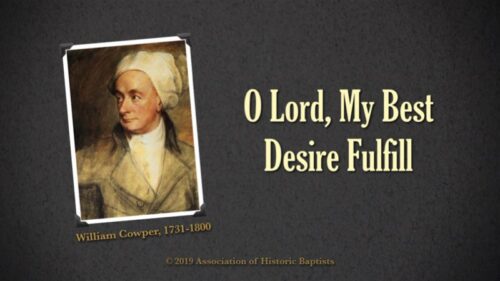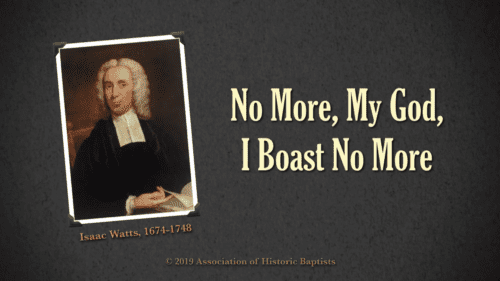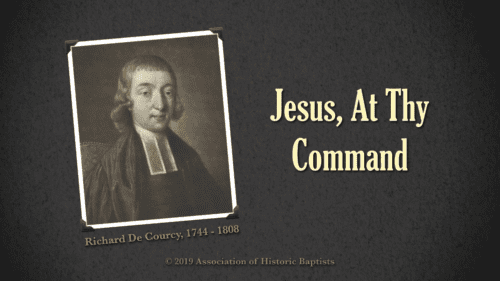And Can My Heart Aspire So High
Isaiah 64:8: “But now, O Lord, thou art our father; we are the clay, and thou our potter; and we all are the work of thy hand.”
Hebrews 12:5-13: “And ye have forgotten the exhortation which speaketh unto you as unto children, My son, despise not thou the chastening of the Lord, nor faint when thou art rebuked of him: for whom the Lord loveth he chasteneth, and scourgeth every son whom he receiveth. If ye endure chastening, God dealeth with you as with sons; for what son is he whom the father chasteneth not? But if ye be without chastisement, whereof all are partakers, then are ye bastards, and not sons. Furthermore we have had fathers of our flesh which corrected us, and we gave them reverence: shall we not much rather be in subjection unto the Father of spirits, and live? For they verily for a few days chastened us after their own pleasure; but he for our profit, that we might be partakers of his holiness. Now no chastening for the present seemeth to be joyous, but grievous: nevertheless afterward it yieldeth the peaceable fruit of righteousness unto them which are exercised thereby. Wherefore lift up the hands which hang down, and the feeble knees; and make straight paths for your feet, lest that which is lame be turned out of the way; but let it rather be healed.”

Anne Steele
Anne Steele (1716-1778) was a poet and hymn writer. She was contemporary with John Gill, Augustus Toplady and George Whitefield. Her ancestors were numbered among the Puritans and she hailed from a long line of gospel preachers. She was the eldest daughter of a Baptist preacher named William Steele. He oversaw a congregation in Hampshire, England, where he and his family lived. At an early age, her mother died. A few years later she sustained a permanent injury to her hip after falling from a horse. After her twenty-first birthday, she was married to a Mr. Elscourt, but he died on the day of their wedding in a drowning accident. She therefore lived under her father’s care until his death, at which time she lived with her brother for the remainder of her life. After showing a gift for writing poetry, her father advised her to use a pseudonym so as not to be lifted up with pride. She therefore attributed her poems and hymns to the name “Theodocia”, which means “devoted to God”. She prepared her first selection of hymns while in her forties, on which occasion her father recorded in his diary—“Nov. 29. 1757, This day, Nanny sent part of her composition to London, to be printed. I entreat a gracious God, who enabled, and stirred her up to such a work, to direct in it and bless it for the good of many…I pray God to make it useful, and keep her humble."
"ALAS, HOW OFT, THIS WRETCHED HEART"





